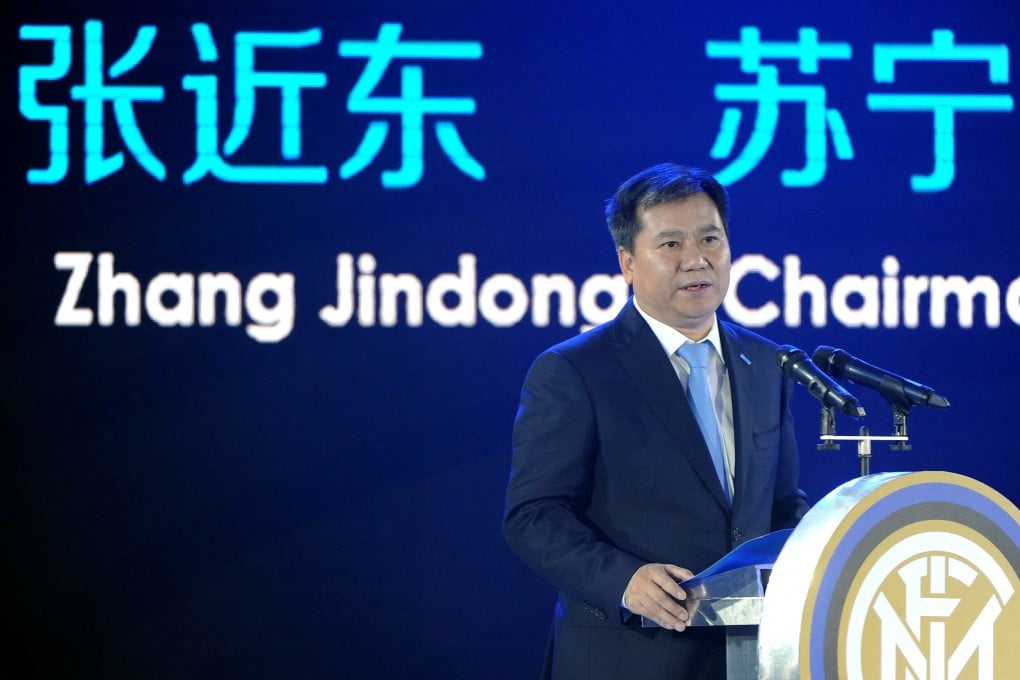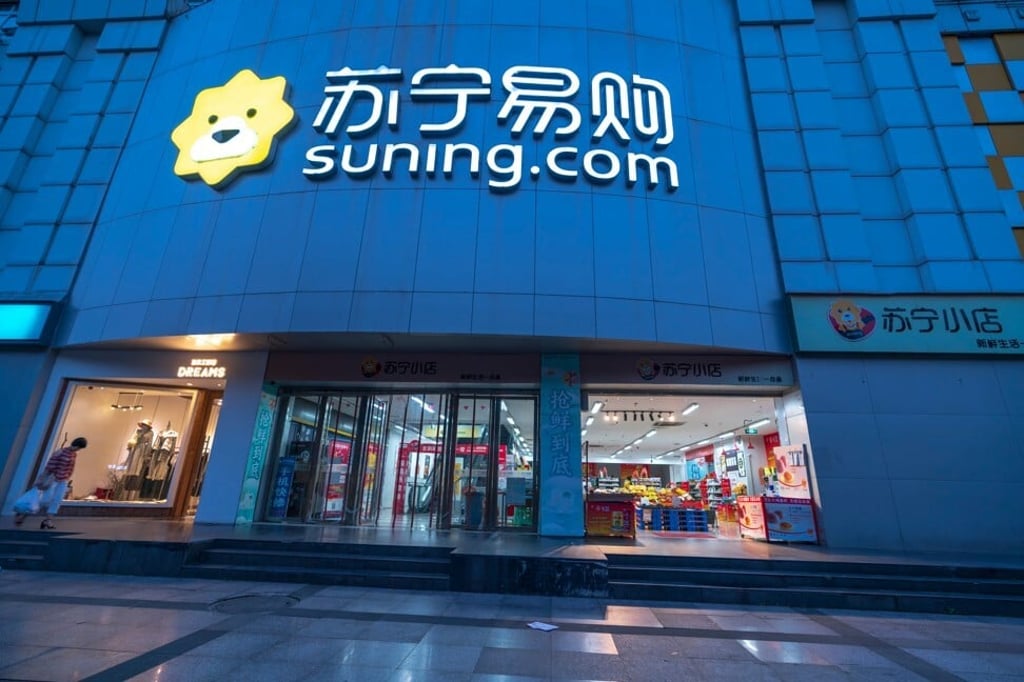Advertisement
Exclusive | Suning founder Zhang Jindong faces hostile creditors in attempt to delay US$600 million bond repayment
- Creditors including Chinese lenders said to be preparing to demand for repayment, although a compromise may still be reached
- Other lenders have earlier sued in mainland and Hong Kong courts to recover their debts
Reading Time:3 minutes
Why you can trust SCMP

Suning.com billionaire founder Zhang Jindong is trying to buy more time to repay a US$600 million bond due next week, one of his largest chunks of debt, after losing control of his flagship company in July. Some creditors are said to be resisting.
A group of bondholders including Bank of Shanghai and Guangdong Huaxing Bank have garnered at least 25 per cent of the securities to demand an immediate repayment, according to people familiar with the plan, speaking to South China Morning Post on condition of anonymity because the information is private.
Zhang’s family-controlled vehicle Suning Appliance Group, the sole guarantor of a US$600 million of bond, is asking creditors to extend the debt maturity to reorganise its finances. The firm is offering a 1 per cent fee sweetener, or US$10 for every US$1,000 of face amount, for their consent.
Advertisement
Suning Appliance kicked off the solicitation process on August 27, seeking commitment from bondholders by September 10 and a meeting on September 20 to vote on two proposals, according to a Hong Kong stock exchange filing. Zhang is seeking waivers to certain events of default for 18 months, and also extend the bond maturity by three years.
Zhang faces an uphill battle to win their backing, as the proposals require no less than 90 per cent majority vote to pass.
Advertisement

Advertisement
Select Voice
Choose your listening speed
Get through articles 2x faster
1.25x
250 WPM
Slow
Average
Fast
1.25x